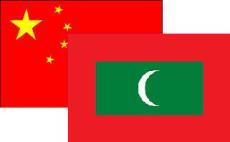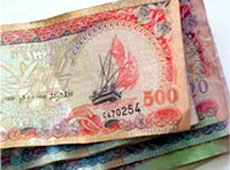Additional reporting by Ahmed Nazeer
The Maldives NGO Federation has expressed concern that political parties are attempting to discredit the Elections Commission (EC) by inciting hatred toward the institution in an effort to obstruct the holding of a free and fair presidential election.
The Maldives NGO Federation, representing over 60 local civil society organisations, issued a press release Sunday (August 18) that declared their confidence in the EC and noted the essential role the commission has played in holding free and fair elections over the past five years.
The organisation also highlighted concerns that some political parties have been trying to discredit the EC “so close” to the scheduled September 7 election.
“We are concerned about attacks by political parties on the Elections Commission,” NGO Federation President Ahmed Nizam told Minivan News today (August 19).
The organisation has called on all the political parties and government institutions not to do anything that will that will obstruct the EC from holding free and fair elections.
Furthermore, the NGO Federation appealed to everyone to cooperate with the EC to ensure the upcoming presidential election is free and fair.
Political party complaints, threats of legal action
The NGO Federation’s appeal follows a series of complaints about the EC issued by the Progressive Party of Maldives (PPM) and the Jumhoree Party (JP).
The PPM has claimed their concerns with the EC have gone “unaddressed” and so are now seeking a legal resolution, PPM vice presidential candidate and former Home Minister Dr Mohamed Jameel Ahmed told local media in Addu City yesterday (August 18).
While Jameel did not explain what the PPM’s specific course of action against the EC will be, he noted that the party was questioning the commission’s independence for three reasons.
“The first and the biggest problem is the questions surrounding the validity of the electoral register. In that regard, problems had been noted similar to what happened before. The reason is whether the IT system established in that place is secure enough to ensure that no one can alter the list. But they couldn’t give us that assurance,” Jameel said.
“On top of that, we hear that outsiders are active inside the elections commission. Such things create more apprehension. But so far it remains unclear what their purpose is,” he added.
 Last week, PPM and JP filed a complaint against the EC’s Legal Director Haneefa Khalid, for alleged political tweeting ahead of the upcoming presidential election.
Last week, PPM and JP filed a complaint against the EC’s Legal Director Haneefa Khalid, for alleged political tweeting ahead of the upcoming presidential election.
Mahloof singled out one he claimed had offended PPM President and former 30-year autocratic ruler, Maumoon Abdul Gayoom.
The EC is currently investigating the matter and said it will take administrative action should it find the need to do so.
PPM Spokesperson MP Ahmed Mahloof told local media the party’s main concern was that Khalid was the wife of Dr Ahmed Ashraf, who contested the by-election of parliament’s Ungoofaaru constituency on a Maldivian Democratic Party (MDP) ticket following the murder of sitting MP Dr Afrashim Ali. The election was won by the PPM by a narrow margin of 81 votes.
On the same day, the Attorney General’s office began probing a disciplinary case concerning Khalid following a complaint filed against her by the Maldives Police Service (MPS). The MPS filed the complaint after Khalid “addressed the police disrespectfully” while she was inside a Male’ jail meeting a client whom she had been representing in court, according to local media.
In early August, PPM and JP lodged a complaint with the EC expressing their fears foreign nationals will have access to the Maldives’ voter database for upcoming polling, as it seeks assistance from Indian IT professionals to set up software to help oversee future council elections.
In response, the EC met with a “combined team” representing the JP and PPM to dismiss any fears, adding that only local EC staff had access to sensitive information and the commission’s security systems.
“We explained to them that the Indian team would not be working on systems being used for the upcoming presidential election. They will instead be providing assistance to help develop a program for future elections,” said EC President Fuwad Thowfeek.
The PPM and JP had challenged the possibility of holding free and fair elections scheduled for September 7 this year if foreigners could access the electoral database and other systems, local media reported previously.
Additionally, in late July the PPM requested the EC not reject voter registration forms missing details such as the name of a voter’s parents or a phone number, that could not be verified during random checks.
The EC rejected the request to make voter registration more “lenient” and noted at the time that no “official complaints” had been filed with the commission over its ability to capably oversee the upcoming presidential election, despite the PPM alleging in local media that it was incapable of ensuring a fair vote.
PPM Council member and Youth Minister Mohamed Hussain Shareef was quoted in local media the same week calling for “major reforms” to the commission, which he alleged lacked the capacity to oversee fair voting.
 In September 2012, President Waheed told
In September 2012, President Waheed told  electricity and phone bills if funds were not transferred from the MVR 1.8 billion (US$117 million) Public Sector Investment Programme (PSIP).
electricity and phone bills if funds were not transferred from the MVR 1.8 billion (US$117 million) Public Sector Investment Programme (PSIP). In addition to sea level rise, the compounded impacts of increased temperatures and extremes of heat, increased intensity of extreme weather events (including flooding and tropical cyclones), and changes in the monsoon pattern are already occurring and are anticipated to worsen, according to the study.
In addition to sea level rise, the compounded impacts of increased temperatures and extremes of heat, increased intensity of extreme weather events (including flooding and tropical cyclones), and changes in the monsoon pattern are already occurring and are anticipated to worsen, according to the study.